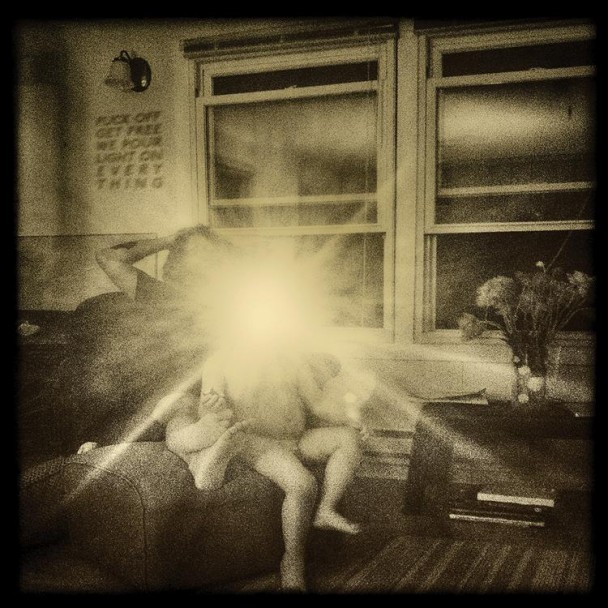Kodie Cherrille
The Cascade
ABBOTSFORD B.C. (CUP) – Prior to their 2005 album, Horses in the Sky, Thee Silver Mt. Zion Memorial Orchestra (SMZ) played sparse, emotionally wrought and gorgeous post-rock pieces that were more fitting to be heard through headphones than at a live setting.
With Horses in the Sky, however, SMZ made the conscious effort to provide a sound that would translate well live. The album was fantastic, but as the band continued along their trajectory of becoming more like a rock band, they began replacing atmospherics with loudness. The result was 13 Blues for Thirteen Moons and Kollaps Tradixionales — two albums of songs that rocked hard, but felt bloated because of the band’s insistence on taking their time to unfurl their ideas.
One brilliant exception was I Built Myself a Metal Bird from Kollaps: a speedy jam (for SMZ standards) that jumped from one sinister riff to another in 7/4, peaking with lead singer Efrim yelping “dance, motherfucker!” over dual tumbling violin lines.
This year’s Fuck Off Get Free We Pour Light on Everything thankfully retains the spirit of that song. It is loud, obnoxious, and brilliantly restless. The four longer songs are lengthy by necessity, and the two shorter songs provide breathers between the high-energy onslaughts — a method lifted straight from Allelujah! Don’t Bend! Ascend!, the most recent output by SMZ’s big sister band Godspeed You! Black Emperor.
The highlights of Fuck Off Get Free show off the band’s deft shifts in mood and melody. The first song, Fuck Off Get Free (For the Island of Montreal), shifts at the 6:45 mark from an upbeat, sunny sing along to a sluggish stomp, trailing into silence with whispered chants of “pull me under bright water.” Take Away These Early Grave Blues pairs Efrim’s heaviest guitar tones with soaring, Celtic-inflected strings, halts in its tracks for a moment, then erupts into a frenzied wall of melody — a Sonic Youth freak-out with two guitars swapped for amplified violins — before returning to land with the main riff of the song.
As impressive as these songs are, Austerity Blues wins out as the most compositionally tight piece here. The upstrokes on an acoustic guitar are intruded upon by an evil, buzzing guitar that could easily be mistaken for an approaching electric storm. The rest of the band kicks in gently nonetheless as the guitar fades out. It intrudes again, but the rest of the band plays around its ferocious wash of noise, which acts as a propulsive counterpoint. Suddenly the cymbals crash down, and the violins, bass, and guitars jovially toss high-pitched lyric lines like strings of bright confetti.
All this happens within three minutes. The 11 minutes that follow it up continue to display a breathtaking range of sounds and styles, moving from a motorik beat-driven jam to an intense crescendo dominated by the mantra “Lord, let my son live long enough to see that mountain torn down,” finishing with a drone that sounds as bright as the gold-tinged explosion of light on Fuck Off Get Free’s album art. Where they once stretched a small handful of melodies, lyrics, and motifs to 10-plus minutes in length, they now masterfully juggle whatever they find in their smorgasbord of styles, making the song feel drastically shorter than 14 minutes.
One complaint can be made, however, about the band’s treatment of the gentler tunes. In comparison to the mammoth, noisy opuses, Little Ones Run and Rains Thru the Roof at the Grande Ballroom (for Capital Steez) feel insignificant. As they stand now, the two songs border the emotional centrepiece, What We Loved Was Not Enough where that song is fully formed, moving from gentle, plucked strings to blast beat-driven peaks, these two are quick and flat, employing a minimal volume range and — especially in the case of Grande Ballroom — feel like they are the beginnings to beautiful, more pensive suites. Instead, both songs quickly peter off into silence.
That being said, Fuck Off Get Free We Pour Light on Everything has proven that the band’s movement into louder, more visceral music was indeed the right thing to do. The album’s quality of music — as well as its sheer volume — will give it a unique place in their discography, where it once looked like quieter (and sadder) meant better. I am glad to say I was wrong. Turn it up to 11, and let Austerity Blues blast you into joyful oblivion.



